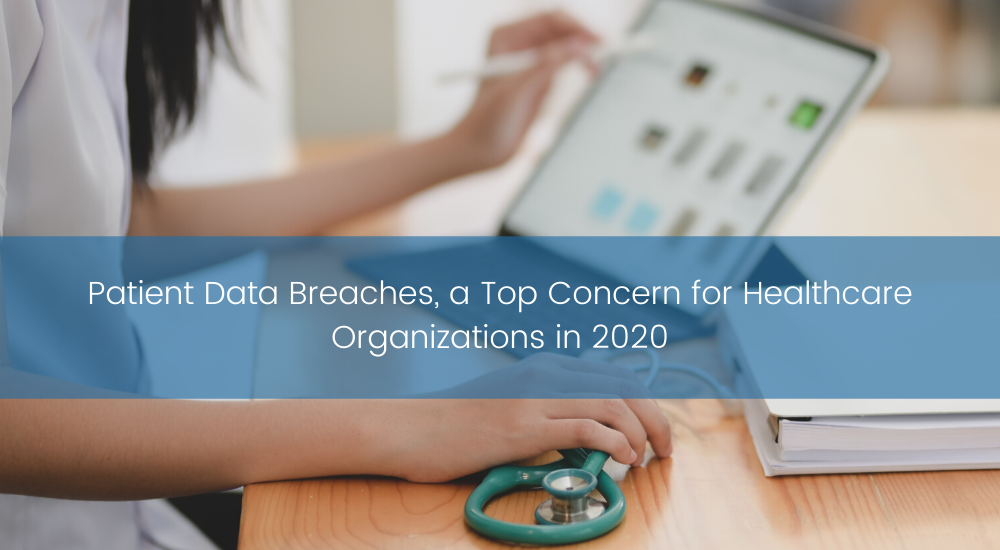
Businesses in all industries are becoming increasingly more susceptible to cyber-attacks. Whether you’re a Fortune 500 corporation or a small local entity, no company should consider themselves immune from ransomware.
Cybercriminals are infiltrating organizations at growing rates like never before. In fact, the New York Times reported that ransomware events increased by 41% from 2018 to 2019 alone. Companies that fall subject to such cyber-attacks may experience a financial disaster and a loss of consumer trust. Ransomware continues to be a progressively more global phenomenon as financial damages are expected to surpass $20 billion annually by the end of next year.
Protecting the safety of patient information should remain the primary goal of healthcare organization leaders. As cybercriminals continue to increasingly target private healthcare practices and small hospitals, decision-makers should exercise precautionary measures to help protect sensitive patient data and other digital assets.
Why Healthcare Organization Attacks Are Increasing
Healthcare organizations remain a top-level target for cyber criminals due to the monetary value of critical health data information. Accessing sensitive customer information from medical data systems proves extremely lucrative for criminals - meaning they’ll do whatever it takes to infiltrate these valuable systems.
The value of health data can be significantly more than traditional financial documents. Patient records can fetch upwards of $60 per record on the black market, a rate nearly fifty times higher than standard financial data. Criminals are highly incentivized to infiltrate healthcare providers as a means of retrieving this sensitive information.
Hospitals and healthcare organizations typically employ a variety of different software and internal systems and connected medical equipment. The distinct lack of consistency across platforms, along with outdated IT support, and lack of end-user cybersecurity training can leave organizations vulnerable to attacks. The COVID-19 pandemic has compounded the issue as telemedicine and virtual office visits add new ways for attackers to exploit vulnerabilities.
Digital thieves typically seek ungranted access to patients’ protected health information, personally-identifying information, and financial records, such as credit card and banking data. To make matters worse, the HIPAA Journal reports that the overall costs associated with healthcare breaches are 65% higher than any other industry.
What Information is Targeted During Cyber Attacks?
Patients trust healthcare organizations with protecting critical medical and financial information. The majority of people entering hospitals arrive in a fragile or vulnerable state; the last thing they want to be concerned about is protecting their personal information. Failing to secure sensitive patient information can leave organizations subject to litigation and HIPAA related penalties, not to mention a loss of consumer confidence and credibility.
Aside from the financial damages, loss of data also jeopardizes the well-being of patients. Medical records contain valuable information that assists doctors and medical personnel in making life-altering judgment calls. Ransomware steals valuable data records and withholds access to critical medical devices. Data in the wrong hands can prove harmful, if not deadly, in certain circumstances.
Healthcare organizations continue to be targeted more than other industries. Here’s some recently reported statistics regarding ransomware attacks on healthcare companies:
- Over 41 million patient records were breached in 2019 alone. This amount tripled the number of reported patient breaches in 2018
- Cybersecurity Ventures projects that ransomware attacks will increase 5x in coming years
- Healthcare breaches increased by 196% from 2018 to 2019 according to the Department of Health and Human Services (HHS) and is forecasted to increase again in 2020
Smaller organizations may feel they’re immune to cyberattacks, but statistics show the opposite may be true. Cyber criminals often target smaller organizations as they tend to lack appropriate security and backup precautions and are more likely to pay ransom. The good news is healthcare industries have a number of options available to protect themselves against data breaches and attacks.
How Organizations are Protecting Against Ransomware
Private healthcare practices and smaller hospitals continue to be ongoing targets of cybercriminals. Hackers and online intruders will do anything and everything within their power to compromise cybersecurity standards. Healthcare leaders must take a proactive approach towards protecting business interests and consumer medical information.
TBConsulting is continuing to help organizations develop strategies and initiatives designed to monitor and protect against cyber attacks. We provide fully managed cybersecurity solutions that proactively monitor and assess digital environments on an ongoing basis. We help organizations determine mitigation strategies, protect against data theft, and develop surveillance security mechanisms.
We help our clients protect critical data by providing 24/7 security support. Utilizing a strategic preventative strategy, TBConsulting creates initiatives designed to safeguard businesses against harmful ransomware attacks.
To find out if your organization may be susceptible to a cyber attack, access our free Cybersecurity Diagnostic Report. As a growing number of healthcare organizations become targets, don’t let your organization become another victim of cyber criminals.
.png)

